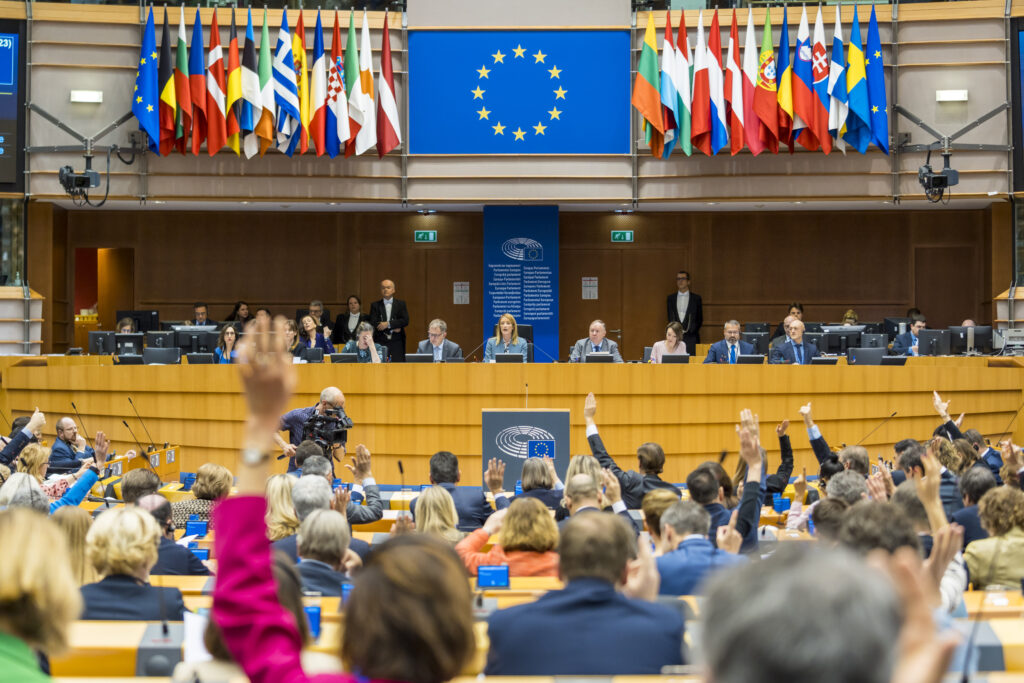Cáit Gleeson* (Dublin City University) and Goran Dominioni** (Dublin City University)
Last week, legislators from the European Parliament and Council reached provisional agreement on the FuelEU Maritime regulation. The regulation aims to increase the use of alternative low-carbon fuels in the sector. The initiative is part of the EU’s Fit for 55 package, which involves new and revised legislation to meet the target of reducing greenhouse gas (GHG) emissions in the EU by 55% by 2030.
Shipping is responsible for approximately 3% of global GHG emissions (3-4% in the EU) and emissions are expected to rise considerably in the future under a business-as-usual scenario.
FuelEU Maritime sets a roadmap for the shipping sector to use increasing levels of renewable and low-carbon fuels. Vessels calling at ports in the EU will be required to reduce the carbon intensity of their fuels by 2% from 2025, rising incrementally to 80% by 2050. The regulation will cover ships above 5,000 gross tons, which represents about 55% of ships and 90% of CO2 emissions from ships.
While the regulation is not prescriptive about what fuel should be used, it does have measures to incentivise the uptake of particular fuel types. The use of renewable fuels of non-biological origin (RFNBOs) will be encouraged by allowing ship owners to count their GHG savings twice. RFNBOs, also known as e-fuels, are fuels such as e-hydrogen and e-ammonia which are produced using renewable energy. If the incentives for RFNBOs result in their constituting <1% of the fuel mix by 2031, a requirement for them to make up 2% of the mix by 2034 will be introduced.
The regulation also stipulates that, from 2030, passenger and container ships will be required to use an onshore power supply while docked in major EU ports. This will extend to all EU ports in 2035. As ships are responsible for a number of air pollutants such as sulphur oxides, nitrogen oxides and particulate matter, this requirement will help reduce air pollution in port cities and surrounding areas while also lowering emissions from ships.
FuelEU Maritime will help scale up the development and uptake of alternative fuels for the shipping sector. It has been welcomed as sending strong signals to the market and providing regulatory certainty for the shipping sector. This regulatory certainty is particularly vital for the decarbonization of international shipping as large investments in the production, distribution, and storage of alternative bunker fuels are needed to decarbonize the sector alongside investments in zero-carbon technologies on vessels. Without an adequate regulatory framework in place, investors may shy away from such investments.
In parallel to the agreement on the FuelEU Maritime regulation, negotiations at the International Maritime Organization (IMO) — the UN agency that regulates international shipping — continued in London last week at the 14th Intersessional Working Group on Reduction of GHG Emissions from Ships (ISWG-GHG14).
There is still significant uncertainty on how things will unfold at the IMO as many options are still on the table, including regarding how to ensure an equitable energy transition for the sector (a topic on which both authors of this blog are contributing through research with the World Bank and an IrishAid funded training programmes for IMO delegates from developing countries). However, two things were noticeable at ISWG-GHG14: i) many countries supported increasing ambition for the revision of the 2050 IMO GHG targets; ii) many countries supported the combination of a technical and a market-based measure to decarbonize shipping. All eyes are now on the July 2023 round of negotiations as there is the expectation that some clarity will be made on these matters.
*Researcher, School of Law and Government, Dublin City University
** Assistant Professor, School of Law and Government, Dublin City University
Photo Credits: European Union 2023
The views expressed in this blog reflect the position of the author and not necessarily that of the Brexit Institute Blog.


